Alarming insecurity in cyberspace
In addition to the benefits of advanced technology, cybercriminals are turning familiar platforms for young people into sophisticated traps, taking advantage of gullibility, curiosity and lack of digital skills to attack. Recently, information about "online kidnapping" cases has continuously appeared on information pages, which is a very worrying sign.
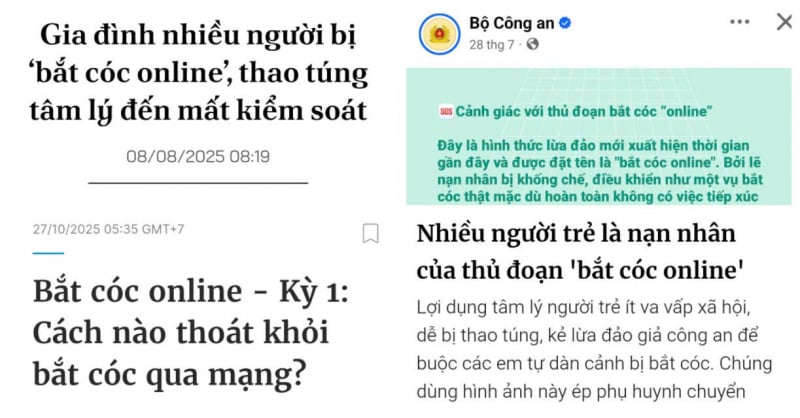
Information and warnings about "online kidnapping" cases are regularly updated on many news sites.
In the past three months alone, there have been many cases of teenagers being controlled and scammed online with sophisticated tricks. In Ho Chi Minh City, a student was forced by a group impersonating "Police investigating money laundering" to install software, turn on the camera continuously and transfer more than 800 million VND. In Da Nang, a student was lured via Zalo, threatened to be "kidnapped to Cambodia" if his family did not pay 400 million VND, but was fortunately rescued in time. Notably, last September, in Hanoi , a student was controlled online for 4 days, causing his family to lose nearly 1.2 billion VND...
The common point of these cases is that criminals take advantage of social networks, impersonating police or acquaintances to manipulate the psychology and appropriate property of young people who are immature in life skills and easily affected by psychological pressure.
According to statistics from the Center for Children and Youth, 86% of teenagers in Vietnam use social networks, 83.9% use smartphones, of which nearly 27% spend more than 5 hours a day in the online environment. High usage intensity while limited defense skills make them the main target of cybercrime.
The Ministry of Public Security said that in 2024, 2,361 cases of child abuse were recorded, of which 381 took place online, accounting for 16% of the total number of cases, an increase of 13% compared to 2023. Common forms of crime include seduction, psychological manipulation (grooming), blackmail by images (sextortion), distribution of child pornography and recently "online kidnapping" to remotely control victims to appropriate property or serve other purposes.
New steps in protecting children online
As the world moves deeper into the digital age, cybercrime has become a global phenomenon, without borders or nationalities. The birth of the Hanoi Convention is a testament to the international community's joint efforts to build a healthy, safe and humane cyberspace for future generations.
The countries that participated in the negotiations of the Convention all share the same aspiration: to protect people, especially children, starting today, when many of them are still immature and unable to protect themselves from the risks and temptations of the online world. The Hanoi Convention is therefore not only a legal treaty, but also a global moral commitment, laying the foundation for a “cybersecurity culture”.

Young people use social media frequently and this makes them vulnerable to online attacks if they do not have enough knowledge.
One of the highlights and breakthroughs of the Hanoi Convention is the first time it has introduced specific regulations on child protection in cyberspace. Articles 14 and 15 of the Convention require countries to criminalize acts of accessing and manipulating children for the purpose of abuse; and strictly handle acts of producing, storing or distributing child abuse materials (CSAM), including content created by artificial intelligence (AI).
These provisions represent a major step forward in the global effort to protect the younger generation from sophisticated forms of online exploitation and abuse. The Convention not only addresses the acts once they have occurred, but also focuses on early prevention, helping to stop abuse at the early stage. This is the inheritance and development of the spirit of the Convention on the Rights of the Child and its Additional Protocols, demonstrating the humane and progressive vision of the international community.
Ensuring justice and humanity in handling cybercrime
In addition to punishing crimes, the Hanoi Convention also aims to ensure justice for victims, especially vulnerable groups such as children and adolescents. This document specifically regulates the protection of child victims and witnesses through specialized measures suitable for the online environment, including the responsibility of organizations and businesses in removing or restricting access to harmful documents.
In particular, the Convention demonstrates humanistic thinking when it limits the criminalization of children's behavior in cyberspace if they are not fully aware of the consequences. In reality, many children today are exposed to technology devices early, participate in social networks and freely express themselves, but do not have full legal understanding. Therefore, education, warning and support are more necessary than punishment. This is a humanistic approach, valuing education over sanctions, helping children grow up safely and confidently in the digital world.
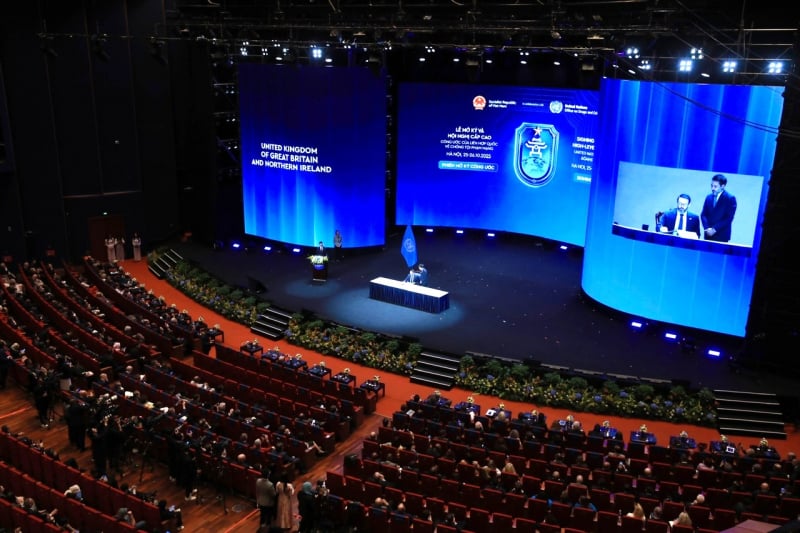
The fact that a series of countries signed within two days of the signing ceremony shows the international community's interest in the Hanoi Convention.
An important message of the Hanoi Convention is to affirm the central role of education and awareness raising in preventing cybercrime. Countries need to promote training and propaganda programs on cyber security, self-protection skills and respect for others in the digital environment.
The Convention calls on each country to proactively build a legal framework, closely coordinate with network service providers, to eliminate harmful content and create a safe and healthy cyberspace for young people. This responsibility belongs not only to the State, but also to families, schools and young people themselves - who are growing up with the Internet.
The Hanoi Convention sends a clear message: young people are not only objects that need to be protected, but also the force that creates the digital future. When equipped with the right knowledge, skills and awareness, young people will become responsible “cyber citizens” who know how to use technology to create, connect and spread positive values.
In the turbulent digital age, this document raises hope for a civilized cyber world where children are protected, respected and have the opportunity to develop comprehensively. For Vietnam and today's young generation, it is a reminder to act together, to build a safe and humane cyberspace, for the future of ourselves and of humanity.
Source: https://cand.com.vn/doi-song/cong-uoc-ha-noi-cong-cu-manh-me-bao-ve-the-he-tre-tren-khong-gian-mang-i786006/



![[Photo] The 5th Patriotic Emulation Congress of the Central Inspection Commission](https://vphoto.vietnam.vn/thumb/1200x675/vietnam/resource/IMAGE/2025/10/27/1761566862838_ndo_br_1-1858-jpg.webp)
![[Photo] National Assembly Chairman Tran Thanh Man receives Chairman of the House of Representatives of Uzbekistan Nuriddin Ismoilov](https://vphoto.vietnam.vn/thumb/1200x675/vietnam/resource/IMAGE/2025/10/27/1761542647910_bnd-2610-jpg.webp)


![[Photo] Party Committees of Central Party agencies summarize the implementation of Resolution No. 18-NQ/TW and the direction of the Party Congress](https://vphoto.vietnam.vn/thumb/1200x675/vietnam/resource/IMAGE/2025/10/27/1761545645968_ndo_br_1-jpg.webp)
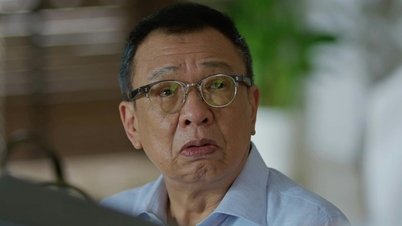

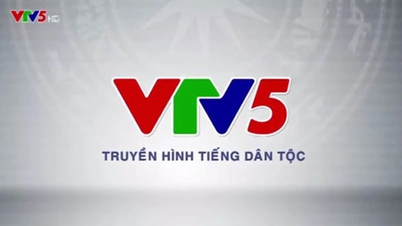

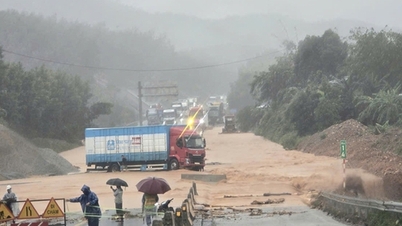

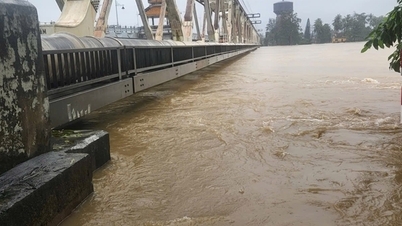
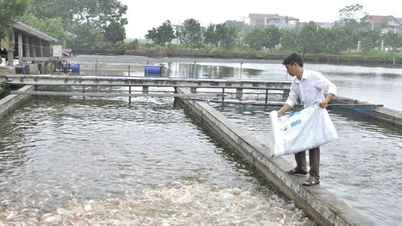









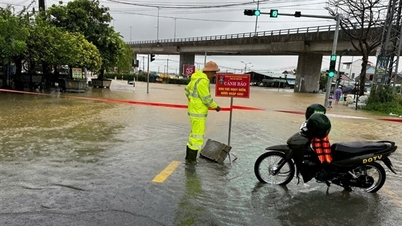

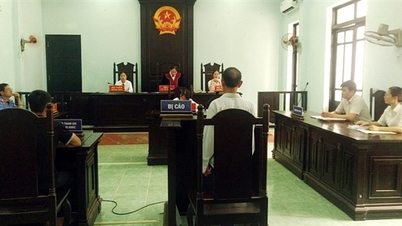
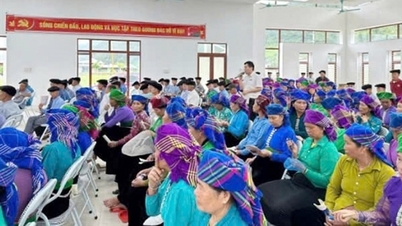





































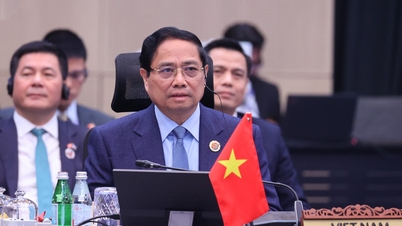







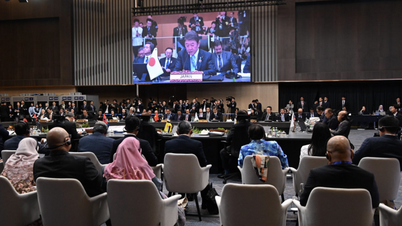



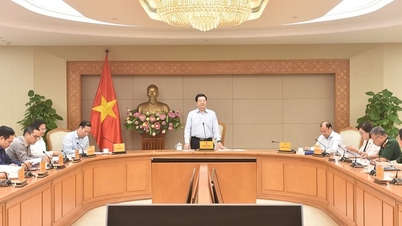

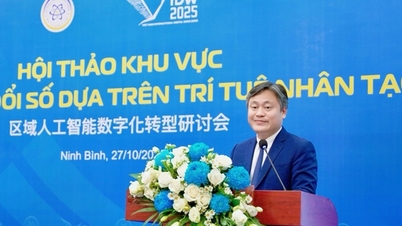
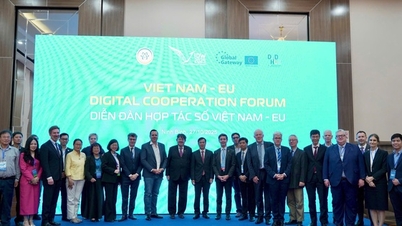
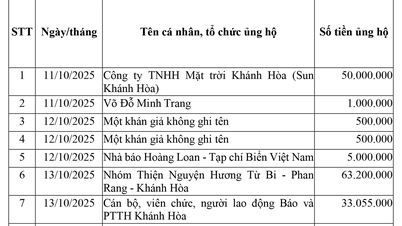

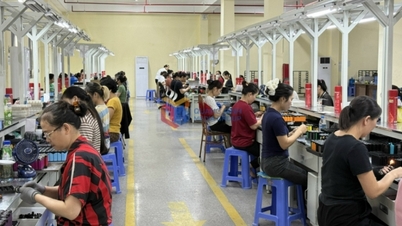

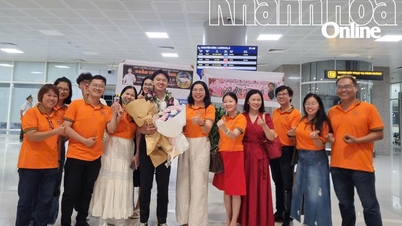


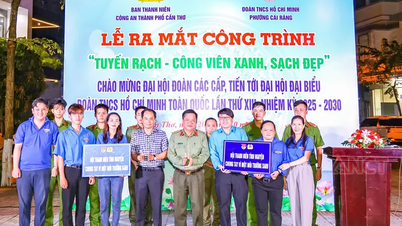
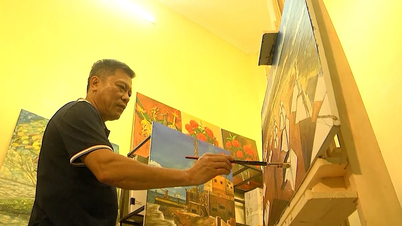
















Comment (0)